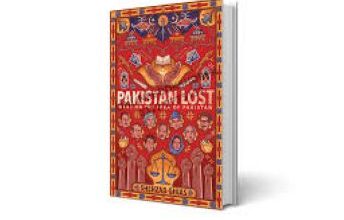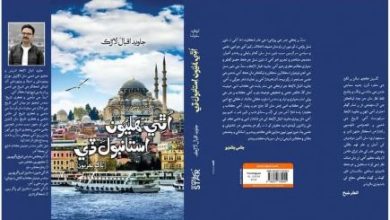In the Kingdom of Death (War Chronicle/Diaries) – Part 12

Fehmi Ajvazi, an eminent author from Kosovo, has shared his book ‘In the Kingdom of Death’ published in Albanian in 2012 in Pristina, and in Romanian in 2019, and was translated from Albanian to English

[In March 1999, the Serbian regime blanketed Kosovo with a contingent of 120,000 regular police, military, and civilian paramilitary forces. Just about two weeks before NATO’s intervention in Kosovo began, the region was surrounded on all sides, while pockets of the interior (villages and towns) were hit with arrests, liquidations, and massacres. Kosovo became a reservation. A kingdom called the “Kingdom of Death” established authority everywhere! However, some areas were controlled by insurgent liberation forces, and in some places, Serbian forces couldn’t penetrate. Well, the hatred between Serbs and Albanians was the same, but the bullets were the same too: they brought death to everyone, and it was no problem for the “bullet” whether the target was Albanian or Serbian. I mean, the forces of the Kosovo Liberation Army held some territory and kept it free! But about ten days before NATO planes launched their attack in their battle for Kosovo, Albanian insurgents managed to have the world’s most powerful force as their ally: the NATO alliance. However, no one had managed to master a pact with death. Just a few days before March 24th, the “Lady of Death” was the ruler of Kosovo, in reality, she was the ruler of the Albanian citizens of this extremely small territory! And for the third time in history, the state of Serbia wanted nothing more and nothing less than: the ethnic cleansing of Kosovo. Over 1 million residents before March 24, 1999, challenged “this kingdom” by saying, “Here we are, your power is not the power of God!” I had decided to stay, not to leave. I was a journalist, but also a creator. And so, I had no idea what dilemmas lay in this direction, despite the open threats from the Serbs, and I knew well that they would try to wash their hands of us like Pontius Pilate! Regardless of every situation and circumstance, I sacrificed to be a witness to a time and a history without parallel! Yes, a witness…! And everything I have said and written about literary-historical conditions is in this book – a testimony. Therefore, this book is a source and my personal experience of a time I pray will never be repeated – anywhere. Just as I pray for the souls of those who did not come out alive in this “kingdom of death” in the third millennium! Read the truth about Kosovo… Author]
– In less than twenty minutes, they’ll be here, I said in a half-whisper. Undoubtedly, my voice was somewhat strained, but I managed to break the deep, suffocating silence that had enveloped us. The silence in the room was dominating and icy. This almost deathly silence demanded to be shattered and scorned! But a silence like this one in the room where we were had, more or less, engulfed all of Kosovo this evening, the entire Balkans, and so on. This silence, more or less, should have also encompassed those who were praying at this moment, as well as those who were frightened at this moment.
– For half an hour, they’re definitely here, Uncle Shaban said, remembering to rush to the phone receiver. Perhaps to speak with someone.
Around eight o’clock, the power was interrupted. The lady of the house ordered the candles to be lit quickly. We had all bought candles learned from experience, from the past, from situations. In Kosovo, normal life had ceased for several years. Economic crises, restrictions, inflation, had taken their toll. On the other hand, the difficult situation of oppression had forced us to take care of various things, to be careful so as not to run out too soon. This time, as we knew what we were waiting for to arrive, we took extra care to secure more salt, bread, candles, medicine, cigarettes, milk, and so on. In the internal hallway of the apartment, Uncle Shaban, with a handset in hand (speaking loudly to the person on the other end), paced back and forth, occasionally kicking the floor with both feet. He would raise one hand and then the other into the air and absentmindedly scratch his head. He enthusiastically greeted the person on the other end of the line with a loud, almost solemn voice, announcing the start of NATO bombardments.

“Good luck, and stay safe!” he shouted. When he finished the conversation, he turned back to us, still in high spirits. He said to us, excited as ever: “Good luck!” Completely bewildered, he collapsed onto the couch, unwilling to let go of it even for the Garden of Eden. Slowly, he then immersed himself in the sea of emotions and thoughts. The silence returned to the room. But soon after, like an otherworldly voice, the alarm siren echoed through the capital city: the fortress of war alert! With this war alarm siren, which had been used in improvised form several times during the day, it seemed like we were getting used to it. However, the difference now was that this was not an improvised alarm; it was a real alarm.
The explosions were incredibly loud, more intense than anything we had ever heard before. They were not mere rumbles.
Around 20:00, the first explosions were heard. In Pristina. In the surrounding areas… The explosions were incredibly loud, more intense than anything we had ever heard before. They were not mere rumbles. These were powerful concussive blasts, accompanied by a blinding flash of light, shaking the entire capital. The ground trembled, not from an earthquake. The sky lit up. The initial targets of the strikes were specific police and military installations of importance. The weapon depots in Hajvali were hit (where the training grounds for Special Police Units and the Special Center for wartime conditions and television [RTP] are also located). Then, the armament depots in Gërmi were targeted, along with the main Serbian army barracks in Pristina, “Marshal Tito,” located to the west of the capital, and the airport, among others.

From where we were, in the eastern part of the well-known “Bregu i Diellit” neighborhood, we had a view of Hajvali. However, since it was night and the lights were off, it was difficult to understand what was happening in Hajvali. Nevertheless, it was entirely understandable that the targets being struck were of strategic-military nature. Also, it was logical to assume that the initial striking force would be severe and destructive, an open warning to Belgrade. The explosions began to intensify. Uncle Shaban and I went to the window in the room facing east, hoping to understand something or see what was happening outside the walls of our apartment. As we approached the window, we noticed a thin but dark cloud of smoke.
The smoke plume, now resembling a volcano’s eruption, slowly rose into the night sky above Hajvali.
The smoke plume, now resembling a volcano’s eruption, slowly rose into the night sky above Hajvali. It appeared like a suffocating angel, swaying slightly in the breathless night and the faint moonlight. This night was starting to be marked everywhere in the painful corners of our history, a night echoing the echoes of the initial explosions.
As we observed that silent column of smoke with Uncle Shaban, a series of munition explosions began. The diverse bursts of ammunition placed in the military depots in Hajvali indicated precise strikes. Rocket projectiles seemed to have demolished numerous depots that had been built in this area for quite some time, depots that were hardly a secret. Flares in the shape of streaks of light rose along with the smoke into the midnight air. It was as if the sky over Hajvali was unfolding like a night filled with fireworks. Moreover, the rumble of airplanes, sometimes oppressive, sometimes audible, and sometimes lost, added to the surreal atmosphere. Everything trembled, as if from the explosions of stars in the cosmos.

After about an hour, the NATO airstrikes ceased. But the detonations of the ammunition in Hajvali did not, though they were of a lower intensity. In our turbulent minds, a chilling calm settled in. Suddenly, everything seemed to turn upside down, as if everything had come to an end. We had never experienced anything like this before. However, it didn’t last long, and the NATO strikes resumed. They came before the sounds of the aircraft could be heard. And once again, the gunfire started. Again, more powerful strikes followed, accompanied by explosions that shook the very core of our beings.
Amidst the explosions and intermittent calm, from the eastern side of the capital, there came the reddish-orange explosions of ammunition at the Hajvali depot, sounding as if wounded. And in these hours we had never experienced before, all of us were pressing on as if burdened by the weight of the blasts, by the weight of joy but also by the weight of concern. Above all, the moment we had long awaited had arrived.
Read: Who are Europe’s indigenous Muslims?
(Post Scriptum: NATO was entering a practical phase of action, following months of continuous threats directed at Belgrade. On its 50th anniversary, NATO was offering direct military support to Kosovo as its first choice. Kosovo, too, was finally entering another period of its history, one as delicate as it was painful. Around ten o’clock, we got up. After bidding farewell to Uncle Shaban and the other members of his family, one thing was clear to all of us: a new time, another delicate yet hopeful time for us Albanians, had begun. With these thoughts in mind, my wife, Shpresa, and my son, Etnik, who had surprisingly fallen into a deep sleep, entered our apartment. But was there anyone in this world who could sleep!? )
(Continues)
Click here for Part-1, Part-2, Part-3, Part-4, Part-5, Part-6, Part-7, Part-8, Part-9, Part-10, Part-11,
______________________
[The book ‘In the Kingdom of Death’ is being reproduced in episodes with the consent of the author]




